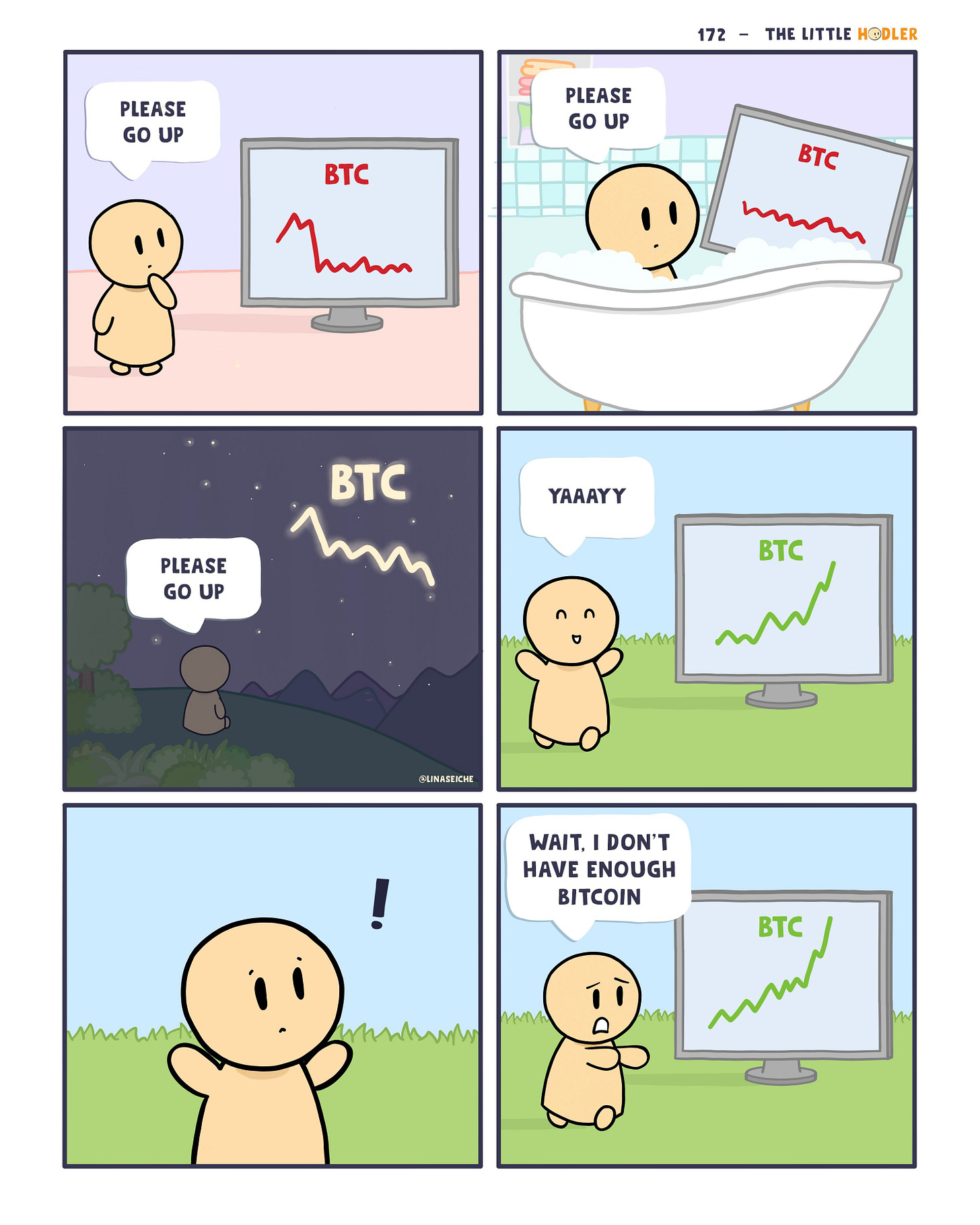Interesting Stuff
History of Financial Deplatforming - This is the most thorough history of the US's global financial sanctions regime that began with Bush Sr. The main takeaway for me was that international banking started politically neutral but has over time become more and more in service to US's political interests. The article gave me a good sense of why countries are looking at alternative non dollar systems like a BRICS-led one. Bitcoin isn’t mentioned but I found myself thinking that the US's eroding of financial privacy and liberty are exactly why it was invented.
Venture Capital Destruction - This article is about the scale of VCs and the destruction that they have left in their wake, not just in their many losing bets, but even in the winning, massively successful ones. The subsidization of these companies through all the VC money, which is ultimately newly printed, especially at scale create terrible outcomes through massive market distortion. It’s a reminder that fiat money (via loans to LPs which then get put into startups through VCs) is truly destructive in ways that we don’t account for.
Accountability sinks - This is a useful concept closely related to rent seeking. The idea is that when something goes wrong in an organizational decision, there's no one to blame as there is no one really in charge. Bureaucracy has this property and increases non linearly with scale. Markets ought to punish such behavior, but when such organizations are subsidized by fiat money, they are immunized from market forces. In other words, markets are the sunlight that disinfects organizations.
Rhodesia - The story we are told of many developing countries is that there is too much corruption and lack of respect for rule of law as the reason for why they don’t develop. This article argues that it's the American hegemony's meddling specifically around the form of government that has led to their going backwards development wise. Rhodesia was a prosperous place before the meddling and a basket case after and the reason for meddling was that the form of government which required some amount of wealth to vote, was not palatable to the west. The one size fits all nominal democracy doesn’t work everywhere.
What I'm up to
Product Part 2 - I talked to Will and we dove into the process of making plans from strategy. Once again, we ar designing a way for families or small communities to run their own Bitcoin banks so people dont have to be so deeply into Bitcoin to use it.
On Ossification - The video of the debate I had with Jameson is not out yet, but I've punlished my opening statement in favor of Ossification. The main argument is that money is better when its not changing ane we need the base layer to be stable for the layers on top to mature.
Rogue Food - I will be at this conference in Dallas next weekend (Nov 7-9). Use the coupon SONG10 for a 10% discount!
Nostr Note of the Week
What I’m Promoting
Unchained Capital is a sponsor of this newsletter. I am an advisor and proud to be a part of a company that’s enhancing security for Bitcoin holders. If you need multisig, collaborative custody or bitcoin native financial services, learn more here.
Bitcoin
Hardware Advancements - BitBox has a couple of new notable features in their latest firmware: silent payments and Taproot miniscript. Both are not usual features for hardware wallets and the UX on something like that is generally not easy on the small screens that hardware wallets have. I hope some nice standard can be set going forward and that such features get a bit more experimentation.
Client Side Validation - This is a bit more friendly explanation of the more technical paper published by Blockstream. The main idea being that instead of making everyone validate, the people interested do the validation. As the article points out, there needs to be some sort of bridge to make it work, though no fork. Apparently, a way such a bridge could be implemented is through BitVM.
Spark - This is a new layer 2 on Bitcoin that’s using the statechains protocol. The most intriguing feature is that it integrates with Lightning, making it so that you can pay lightning invoices through third party enablers. The main selling point is the really cheap fees. What’s remarkable is how many of these L2’s “speak” lightning and integrate in interesting ways to super-charge the scaling.
Lightning
The Tando Story - Tando is a lightning app in Kenya where the medium of exchange part of the equation is very valuable. This app lets users connect to the main payments network in Kenyan Shillings using lightning, which is quite remarkable, given that such integrations aren’t common anywhere in the world. Given that there’s a Bitcoin conference there in December, it’ll be interesting to see what user experiences are, particularly from foreigners.
Foxbit - This Brazilian exchange has now integrated lightning, which in itself isn’t that remarkable. What is, though, is that they contracted a separate company to do it, namely, Lightspark. As developer time is precious, this sort of outsourcing would seem advantageous, and bodes well for Brazilians that want quick exchange of their Reals.
Max Flow - This article from Bitcoin Magazine sheds a bit more light on Rene Pickhardt’s paper on lightning payment feasibility. The main argument is that network health is best measured by the largest payments that are able to be routed and that this is a lot more useful than some of the other metrics like capacity. Practically speaking, this makes sense as the success of the actual payment is more practical as data than anything else.
Economics, Engineering, Etc.
Interest payments in BTC - River has an interesting program where they’re offering interest payments on cash in Bitcoin. Presumably, they have access to interest facilities that pay more than the 3.8% rate they’re offering on USD and they can increase buy pressure by paying the interest in BTC. I would love to see more banking services like this as Bitcoin matures.
Microsoft considering BTC Treasury - Some investors are interested in getting Microsoft to put some of their cash horde into Bitcoin. The board has apparently recommended against this, backed by Vanguard and Bill Gates, but if Bitcoin does well the next year or so, I can’t imagine them denying a vote like this again. That said, it’s entirely possible that an activist investor could get them to buy BTC even now.
Pubky - The decentralized web is starting to get a bit more crowded as this new protocol was announced at Lugano’s Plan B Forum. The main idea seems to be that you run your own Pubky Core which stores all your data instead of relying on relays as Nostr does. They came out pretty strong with this launch, adding a dev kit for developers, and it’ll be interesting to see how much traction they get. It’s not entirely clear how much Bitcoin integration it’ll have, but I look forward to seeing it.
Quick Hits
New Statue - Plan B Network unveiled a pretty cool statue honoring Satoshi in Lugano.
Monero Traced - Japanese authorities have arrested some people in connection to money laundering on the supposedly private network.
Bukele donates to Honduras - 2 BTC to fund 1000 schools. Crazy that they’re now aiding other countries.
Saylor on Self-Custody - I’m not sure how much the tweet clarifies things, but he seems to be for self-custody.
BPI on BTC Reserve - Bitcoin Policy Institute has published a paper arguing that Central Banks should be holding BTC as a reserve.
Fiat delenda est.








